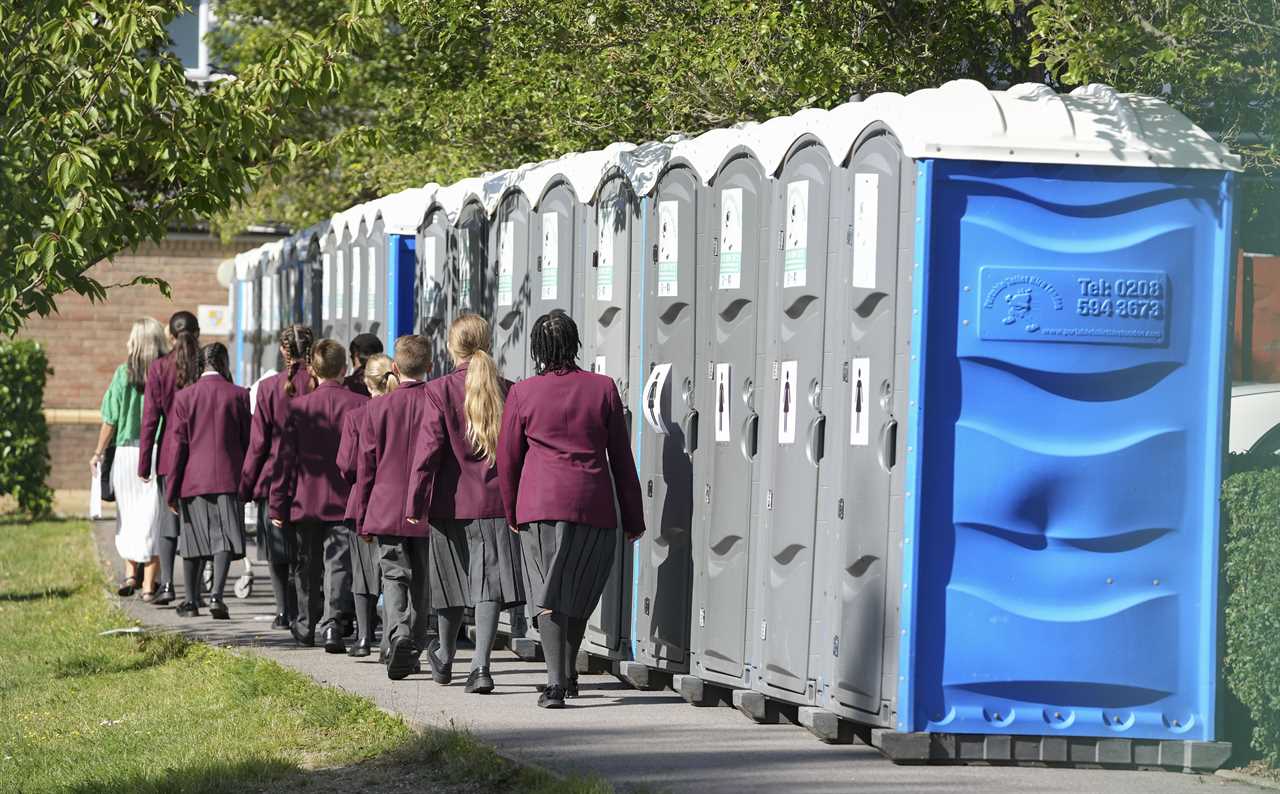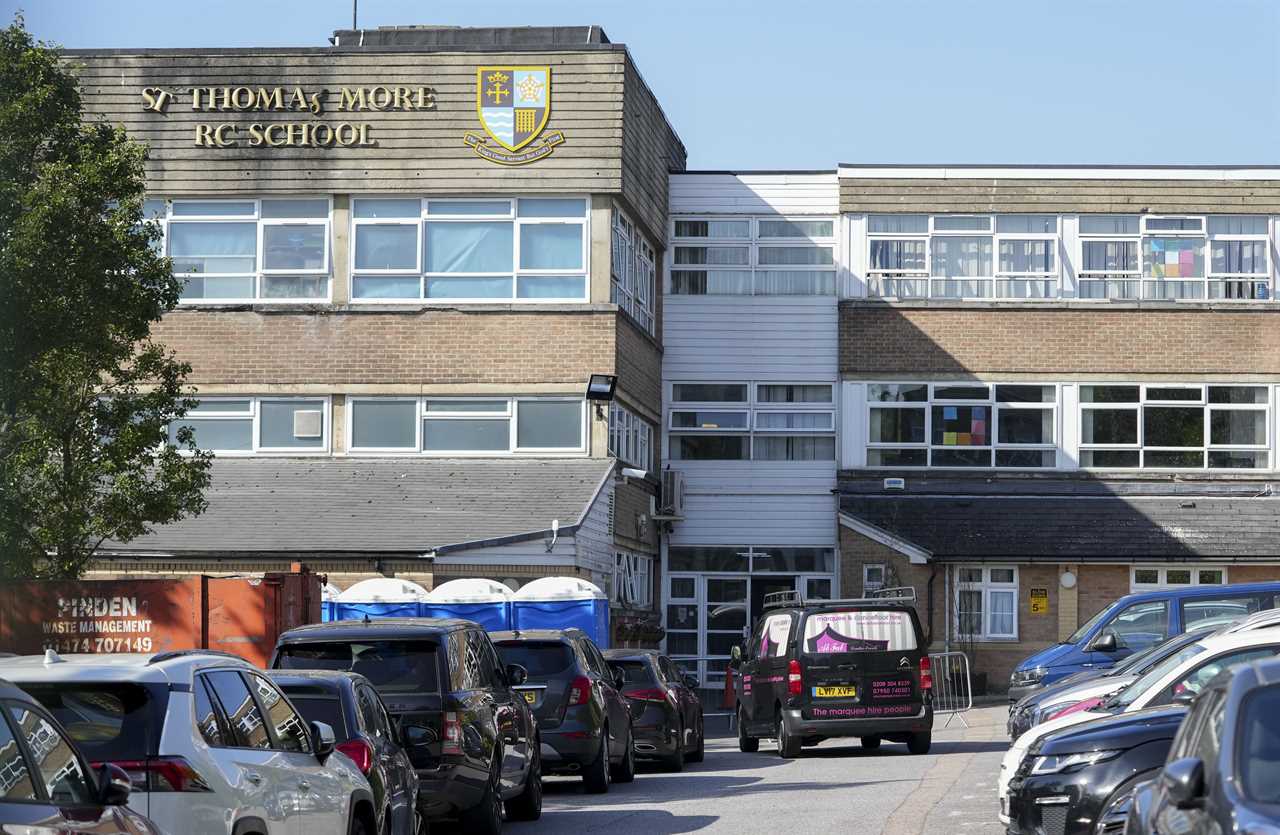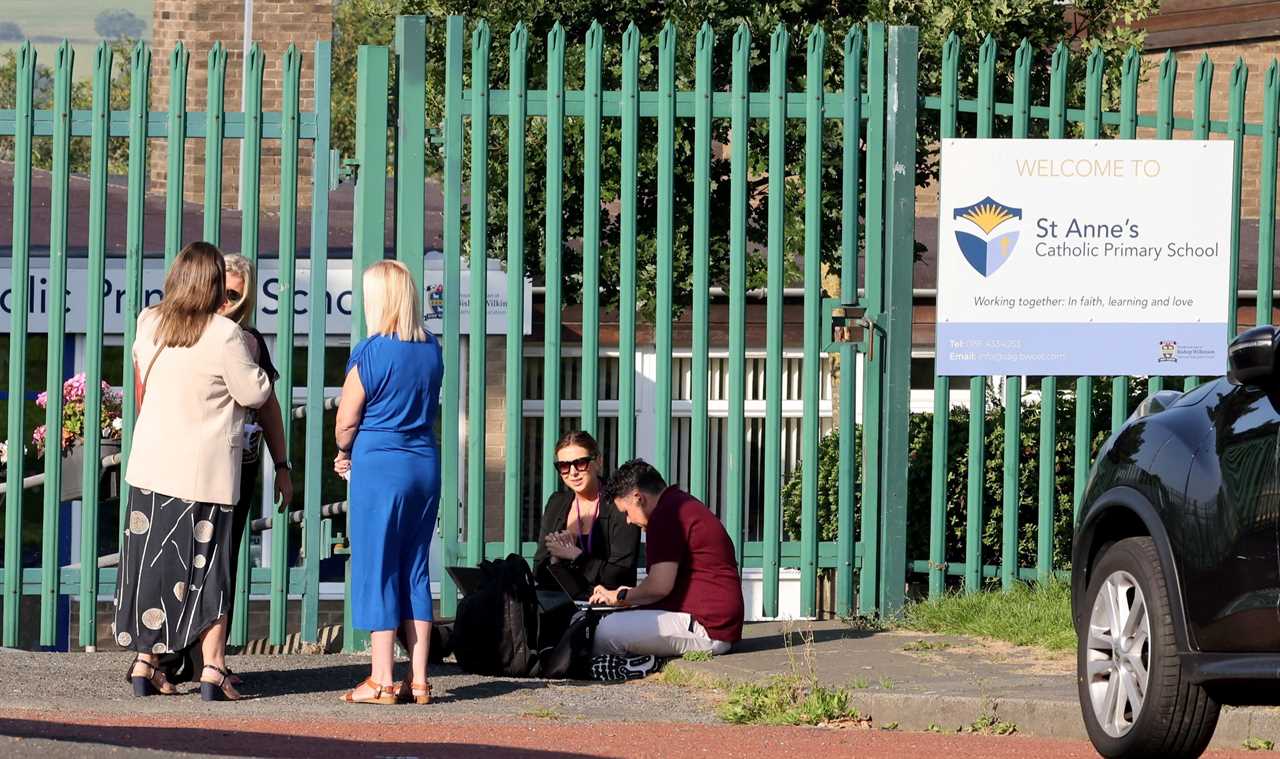
Local Authorities and Trusts Told to Get Moving on Reports
School bosses in the UK have been urged to take immediate action and complete reports on the possible presence of dodgy concrete in their buildings. Education Secretary Gillian Keegan issued the urgent order as it was revealed that up to 1,100 schools may be affected. The call comes as teachers are desperately appealing to parents for help in finding portable toilets and temporary classrooms to fully open their schools.
Thousands of Pupils at Risk
Fears are growing that tens of thousands of pupils could be returning to classrooms with Reinforced Autoclaved Aerated Concrete (Raac) that has not yet been identified. Shockingly, one in 20 school bodies, including councils and trusts, have failed to inform the government if their buildings are affected. These tardy organizations have until Friday to submit surveys to the Department for Education, 18 months after they were initially requested.

Education Secretary Issues Stern Warning
Education Secretary Gillian Keegan has expressed her frustration at the lack of response from some schools. She stated that five percent of schools or responsible bodies have not completed the surveys. Keegan has written to these non-responsive organizations multiple times without receiving a reply. She is determined to take action and ensure that every school affected by dodgy concrete is identified and addressed.
PM Supports Education Secretary's Call
Prime Minister Rishi Sunak has backed the Education Secretary's rallying cry to schools. His spokesperson reiterated the need for reassurance for parents and emphasized the importance of prioritizing safety. Sunak insisted that the vast majority of schools are not affected, but acknowledged the disruption caused to those that are due to the concrete issue.

Chaos and Desperation at Blighted Schools
Teachers and headteachers at affected schools are scrambling to find alternative solutions. Some have resorted to asking parents if they have any portable toilets or temporary classrooms they could use. Hadleigh High School in Suffolk, for example, has been forced to put 16 classrooms out of use, leading to secondary school students attending lessons on a rotation basis. The school is desperately seeking 14 temporary buildings to fully reopen.
Concerns Extend to NHS and Prisons
The dodgy concrete issue is not limited to schools. Hospitals have been advised to check for Raac and draw up evacuation plans, while prisons are being inspected for the crumbling concrete as well. At least 41 hospital buildings are affected, with one hospital in Cambridgeshire going so far as to ban obese patients from being treated on upper floors. The government has pledged £685 million to address Raac issues in hospitals and aims to remove all of it from the NHS by 2035.

The Chief Inspector of Prisons, Charlie Taylor, has highlighted the potential challenges faced by the prison sector due to a lack of jail space. He expressed concern that the concrete issue could become a major problem in prisons.






